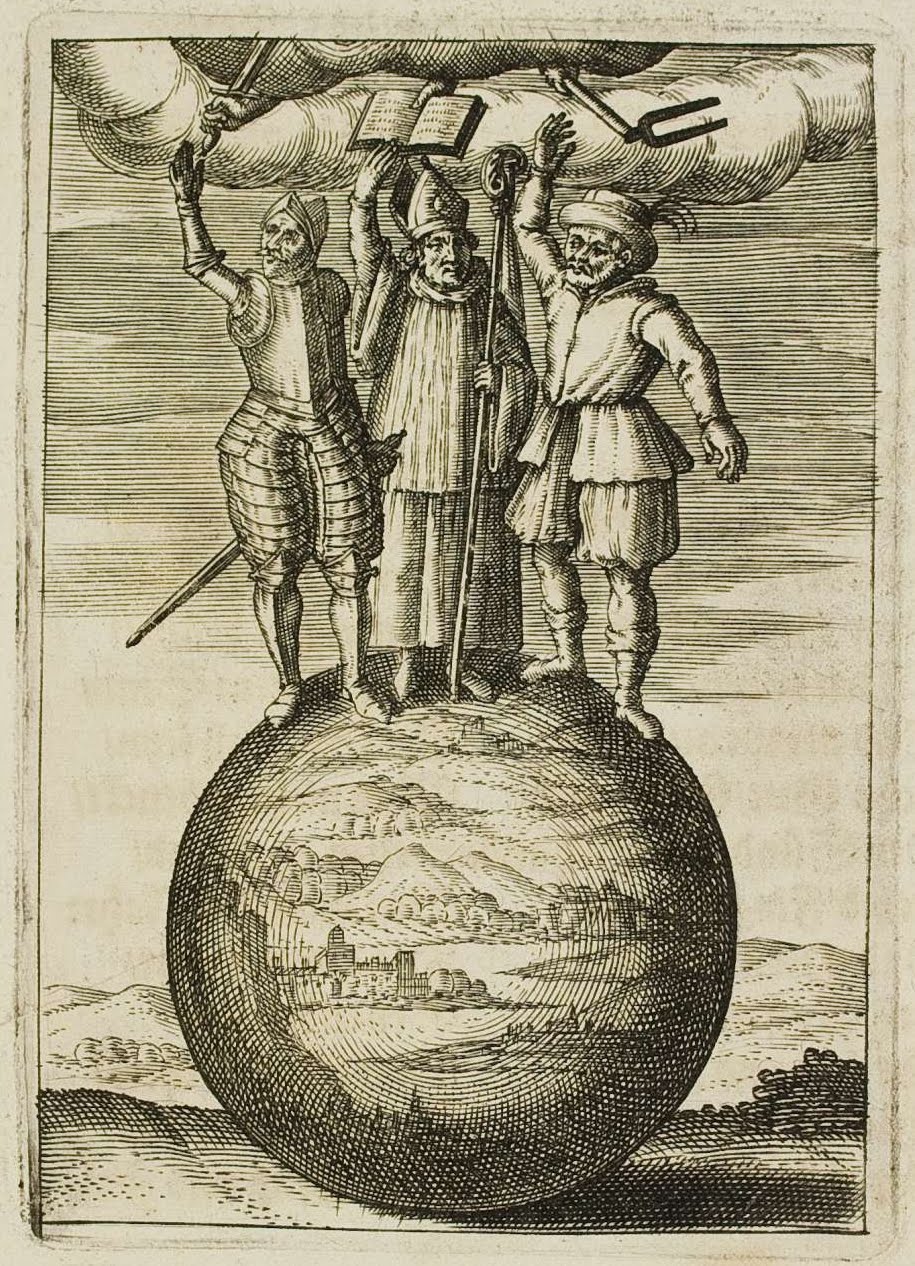First developed in the 16th century, emblems consist of three parts: a symbolic picture (pictura) with a motto or title (inscriptio) and an explanatory poem or epigram (subscriptio). Emblem books proved popular for more than two hundred years and thousands were published across Europe.
The purpose of the emblem is to indirectly convey moral, political or religious values in forms that need to be decoded by the viewer. The pictura often juxtapose ordinary objects in an enigmatic way so as to offer a reader the intellectual challenge of attempting to divine all the allegorical meanings. In this way, emblem books typified the extraordinary Renaissance and Baroque aesthetic in which objects were thought to contain hidden meanings and concealed links between apparently dissimilar objects were believed to exist. [see The Odd Baroque]
"Emblem books exercised an enormous influence on literature and the visual arts, and therefore they have long attracted the attention of scholars interested in painting, decorative arts, literature, illustrated books, iconography, symbolism, theories of representation, social and cultural history." [source]
The esoteric pictura below (from 1617) hew much closer to the symbols of alchemy than they do to the typical visual language of moral or instructional emblems. These illustrations have been cropped and if you click through, you can see the full page image, including the (German) inscriptio and subscriptio. Or right click and 'view image' to see the cropped pictura in larger format.














[click on any picture to reveal the full page image with accompanying text; or, right click and 'view image' to see an enlarged cropped illustration]
'Emblemata Nova' by Andreas Friedrich (or Friedrichen) includes a subtitle that translates approximately as:
a picture book, in which our contemporary world and its essence is painted disguisedly and explained by matching rhymes, exhorting the pious to more devotion and virtue, the evil and reckless to acknowledge the true teachings of Christianity and as a warning to them.The book was published in Frankfurt in 1617 and the engravings are thought to be by Jaques de Zettre and published by Lucas Jennis : see the second of my comments below (Thanks MrH!).
'Emblemata Nova' was recently placed online by Herzog August Bibliothek, Wolfenbüttel.
Emblem Book Projects: Glasgow; Champaign-Urbana; Penn State; U Coruña; Wolfenbüttel; Utrecht & Munich.
Previously: emblemata & alchemy. [W]
Follow along on Twitter: @BibliOdyssey.

